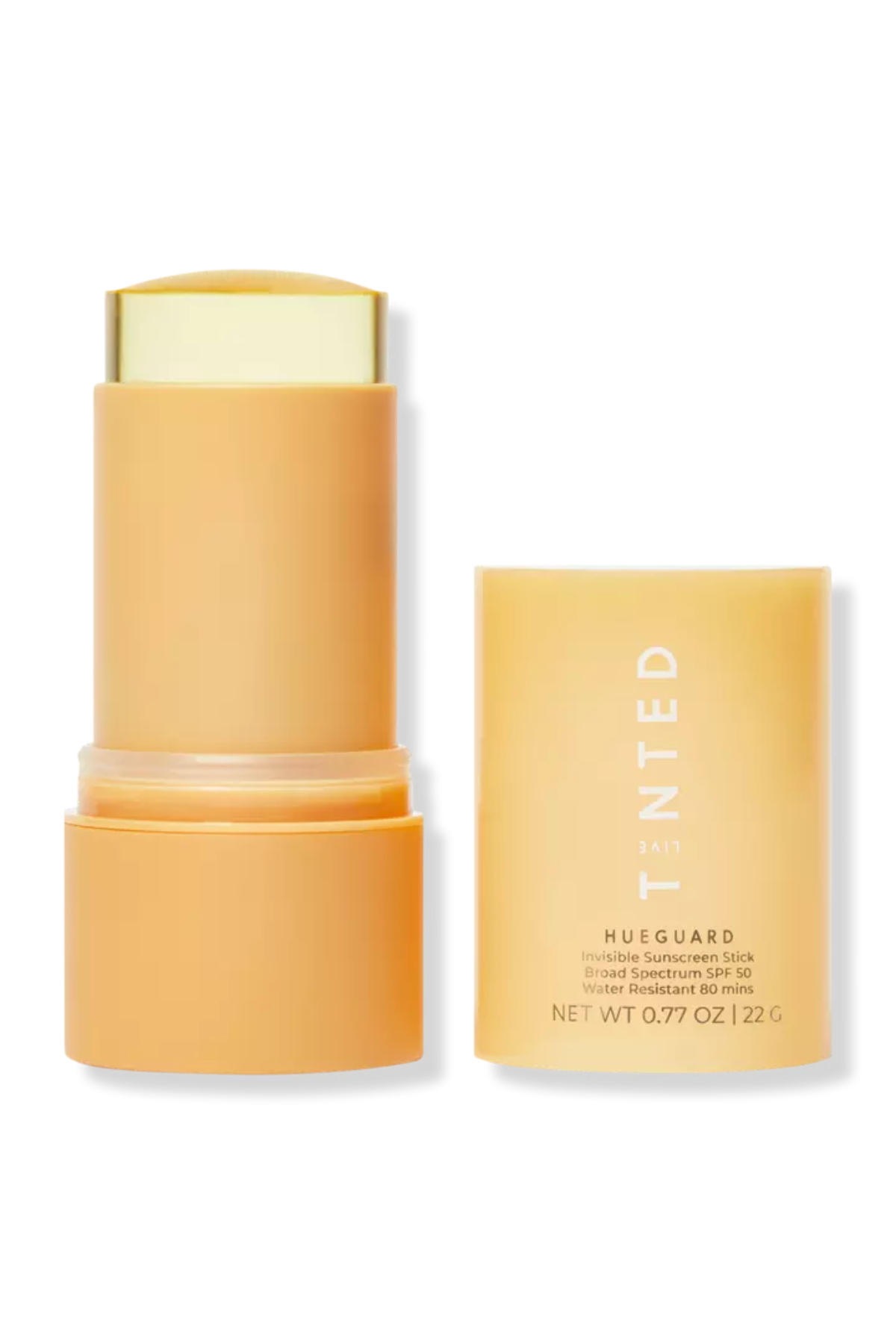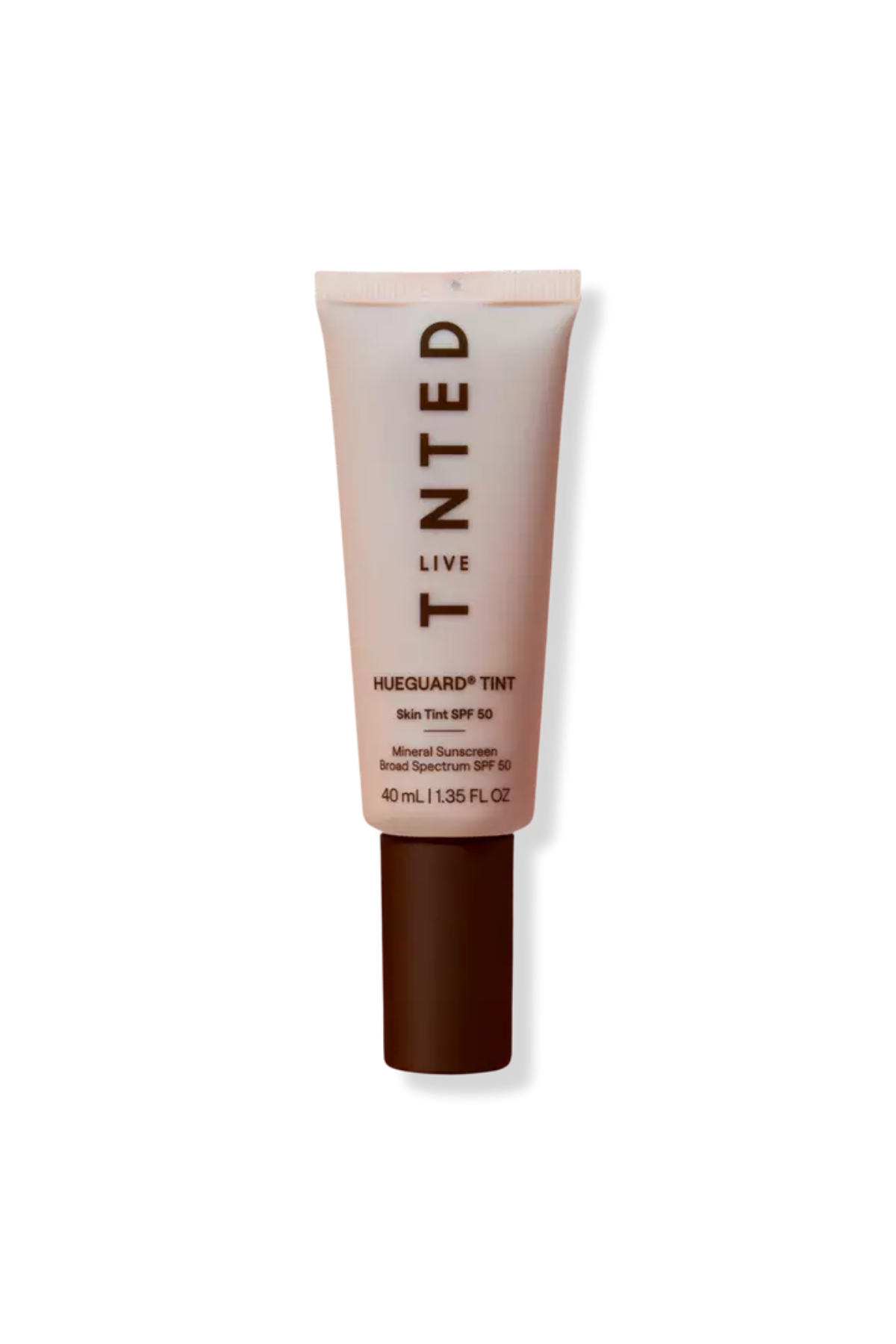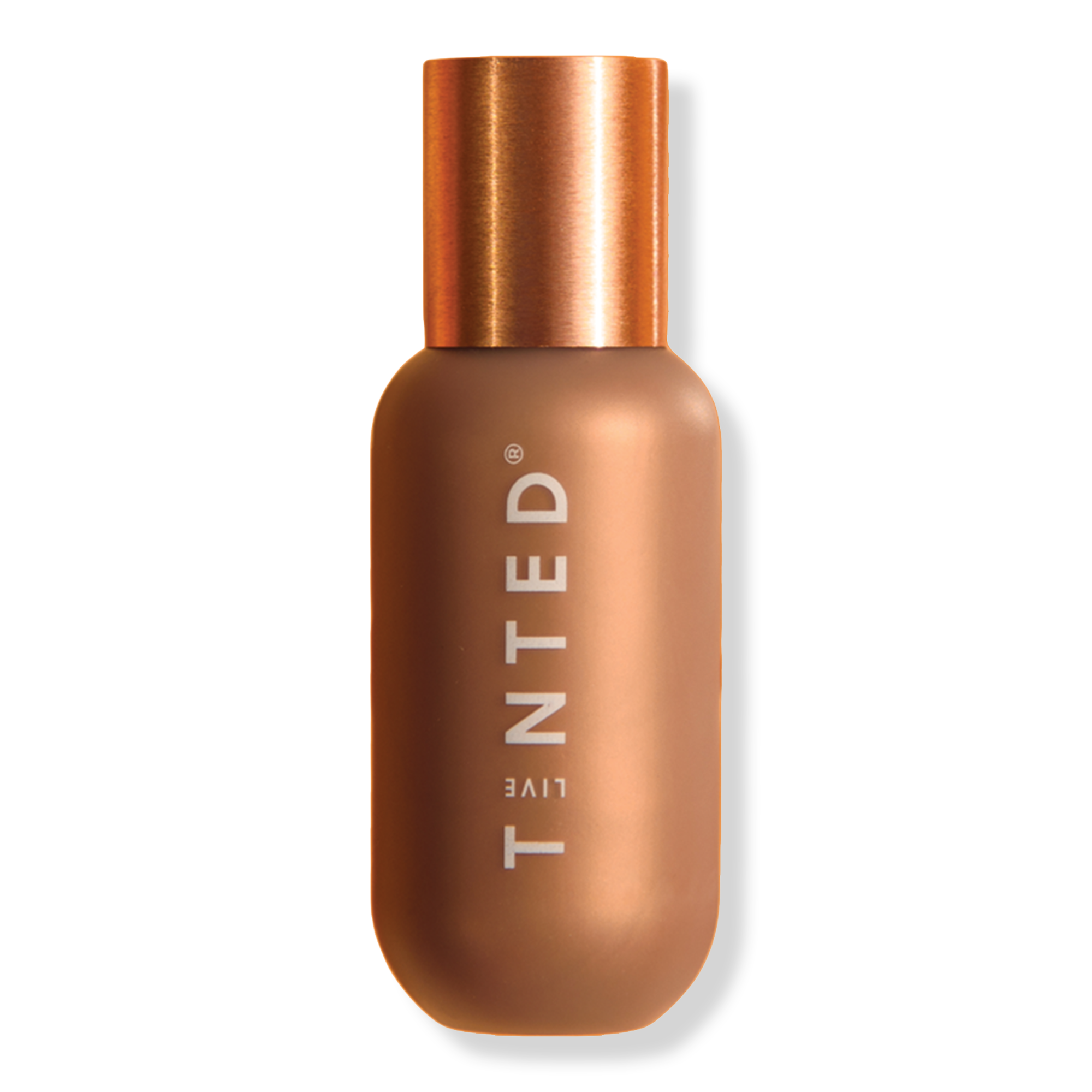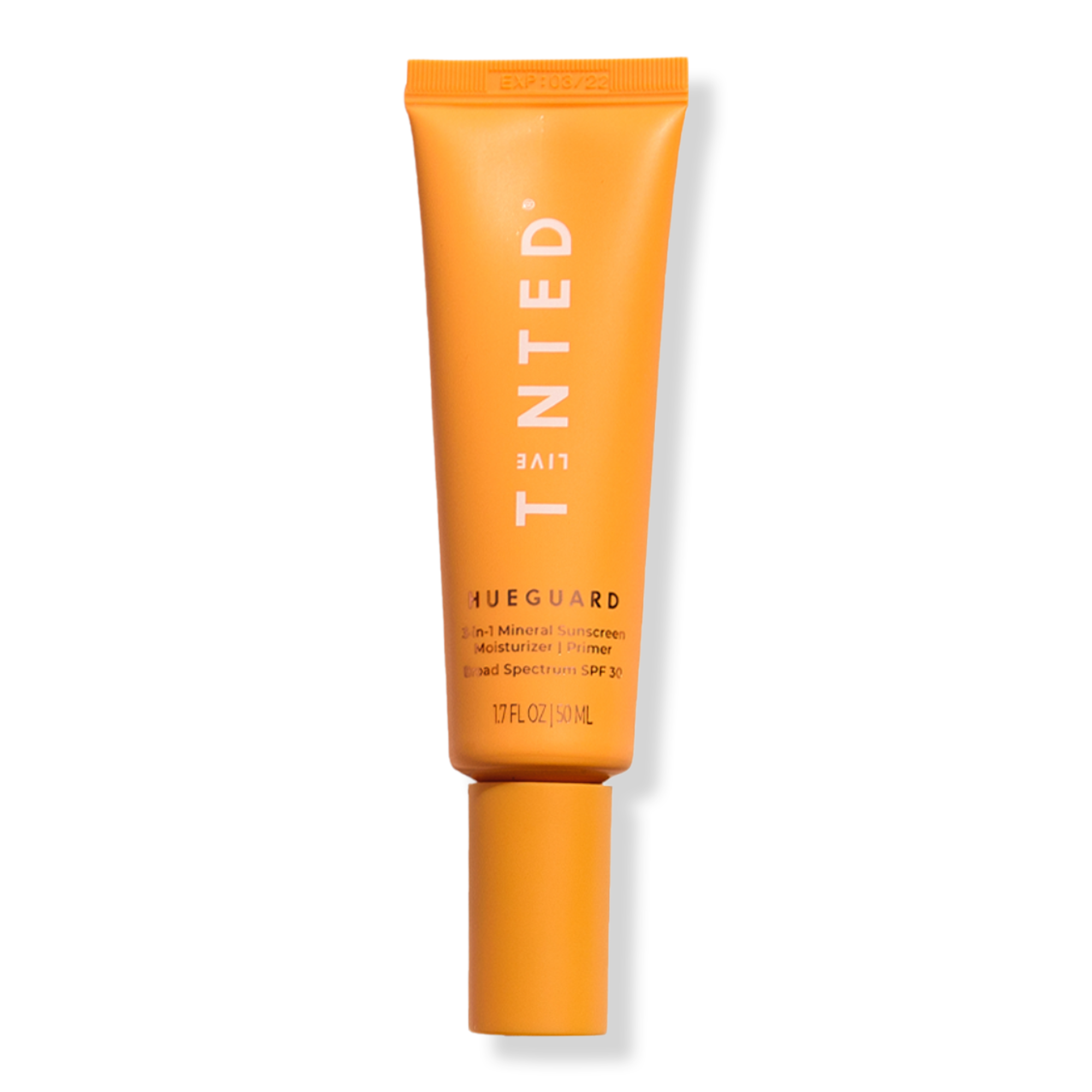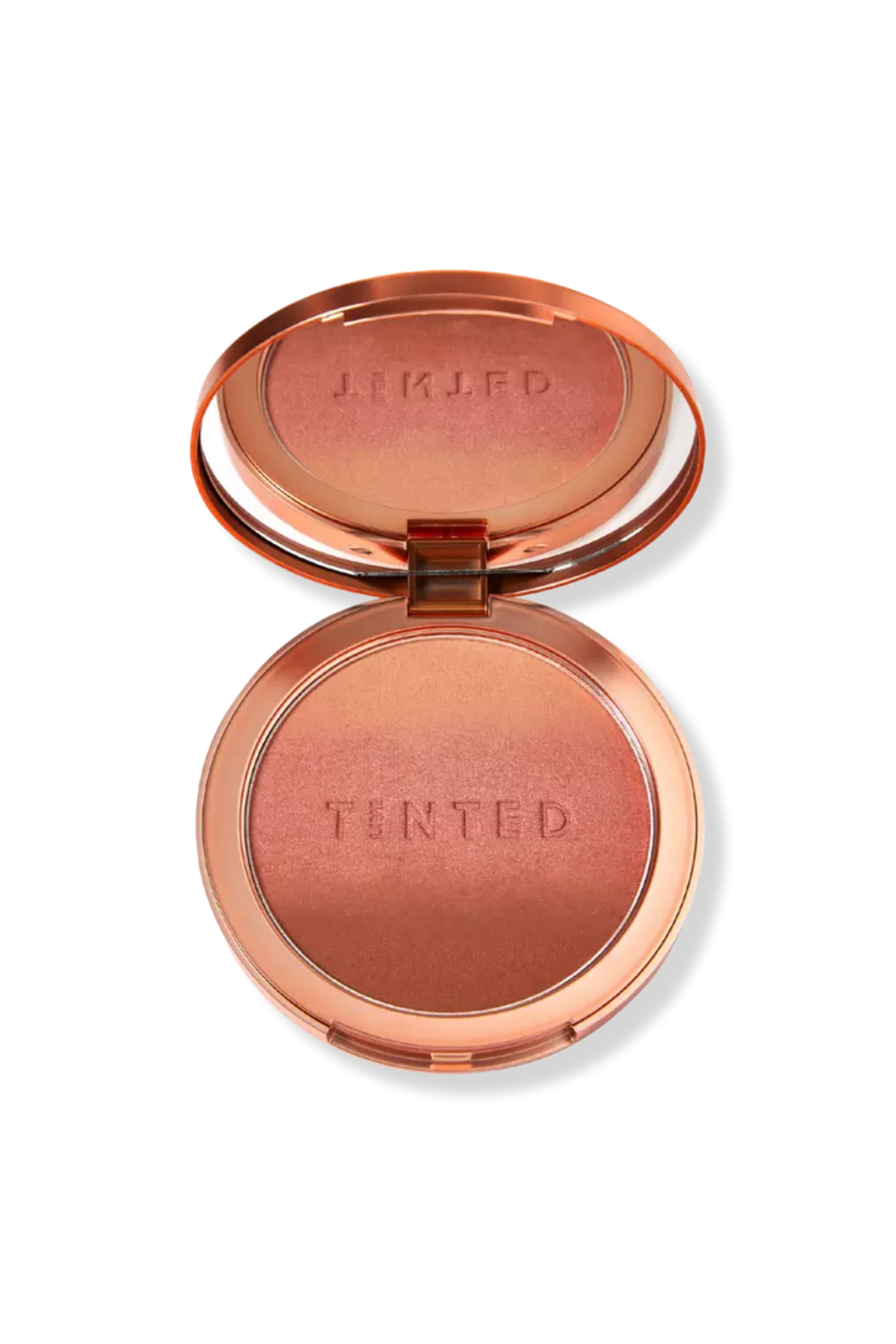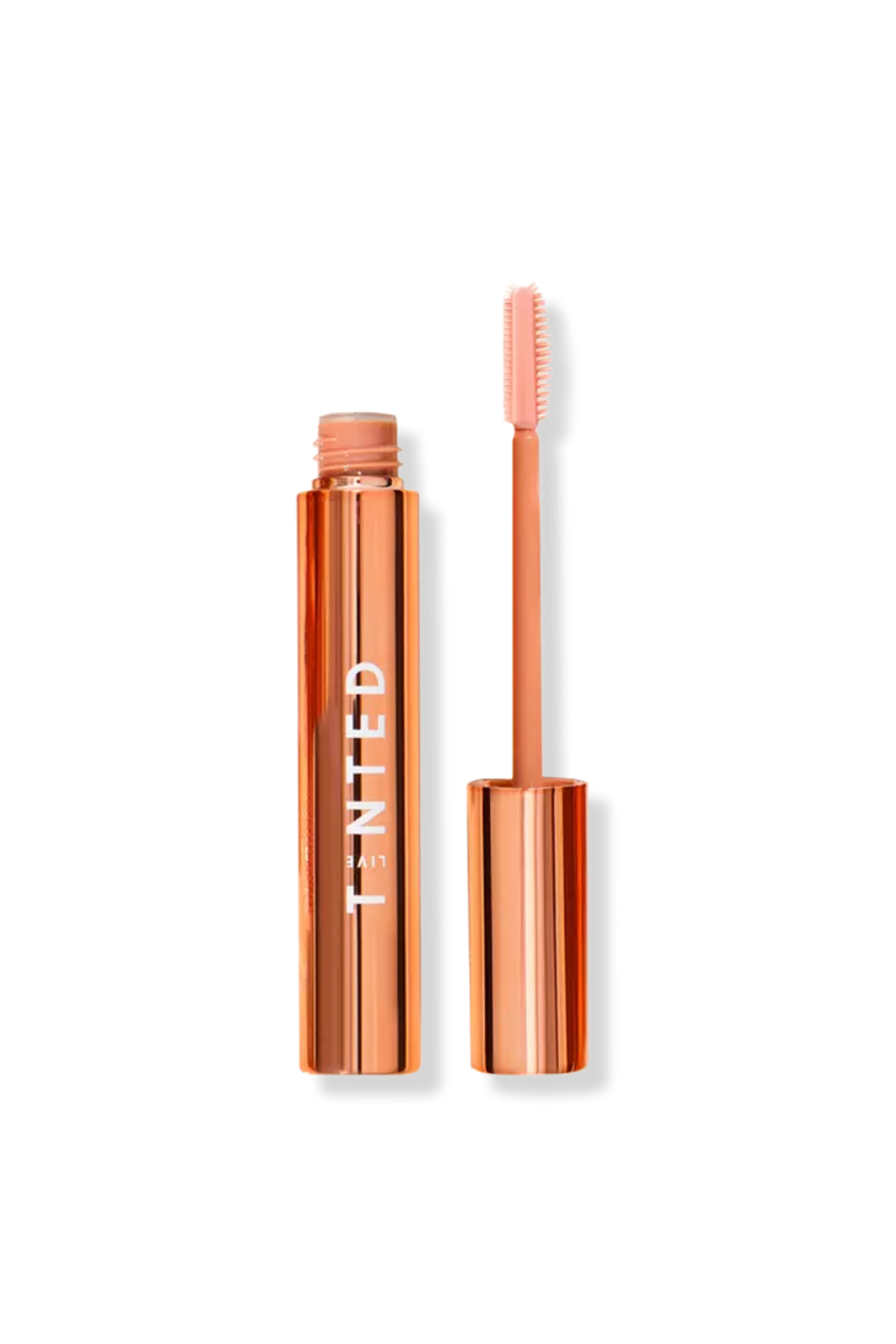For Deepica Mutyala, Entrepreneurship Is Worth the Sacrifice
The Live Tinted founder says you can have it all—but not all at once.
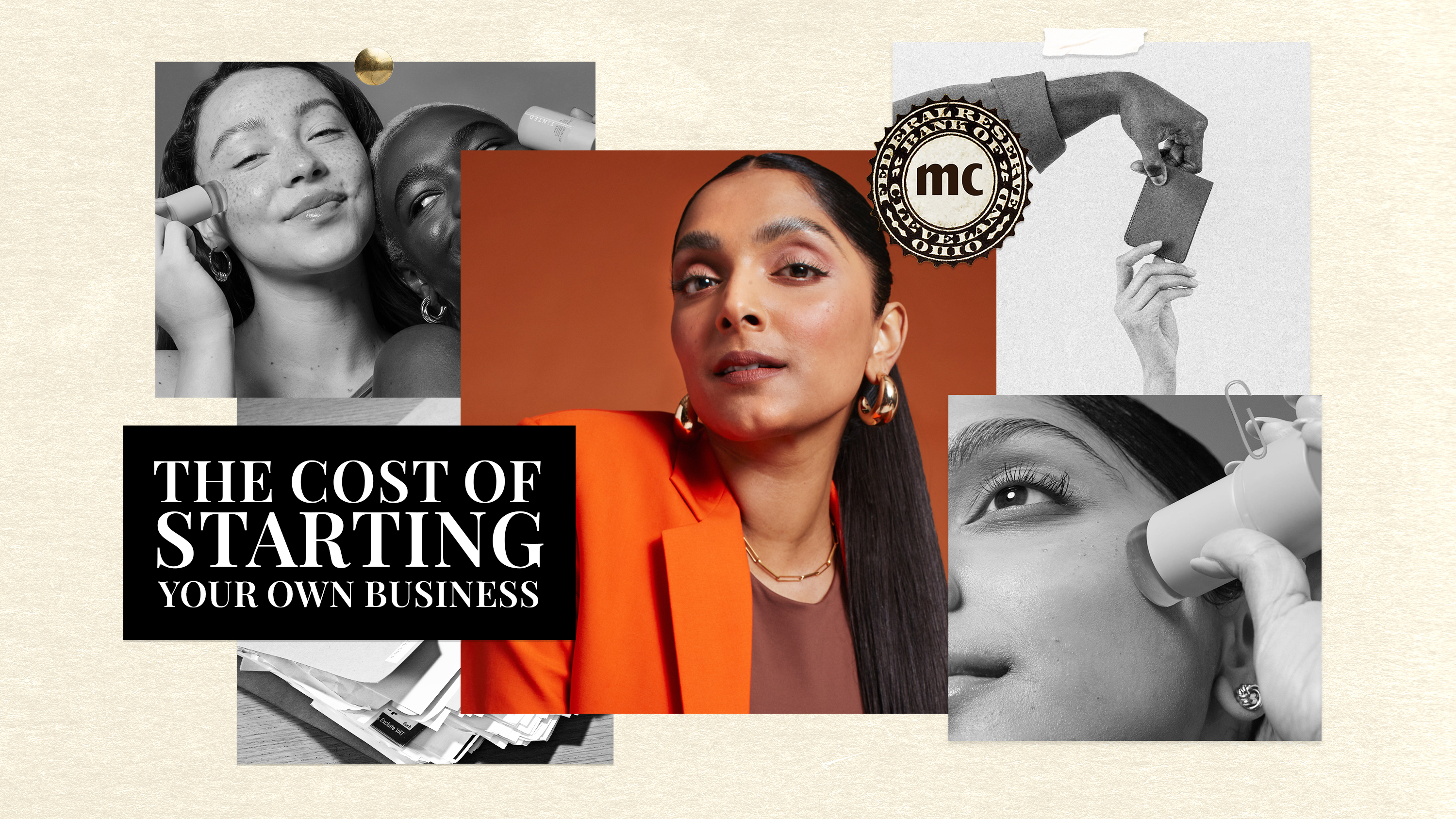
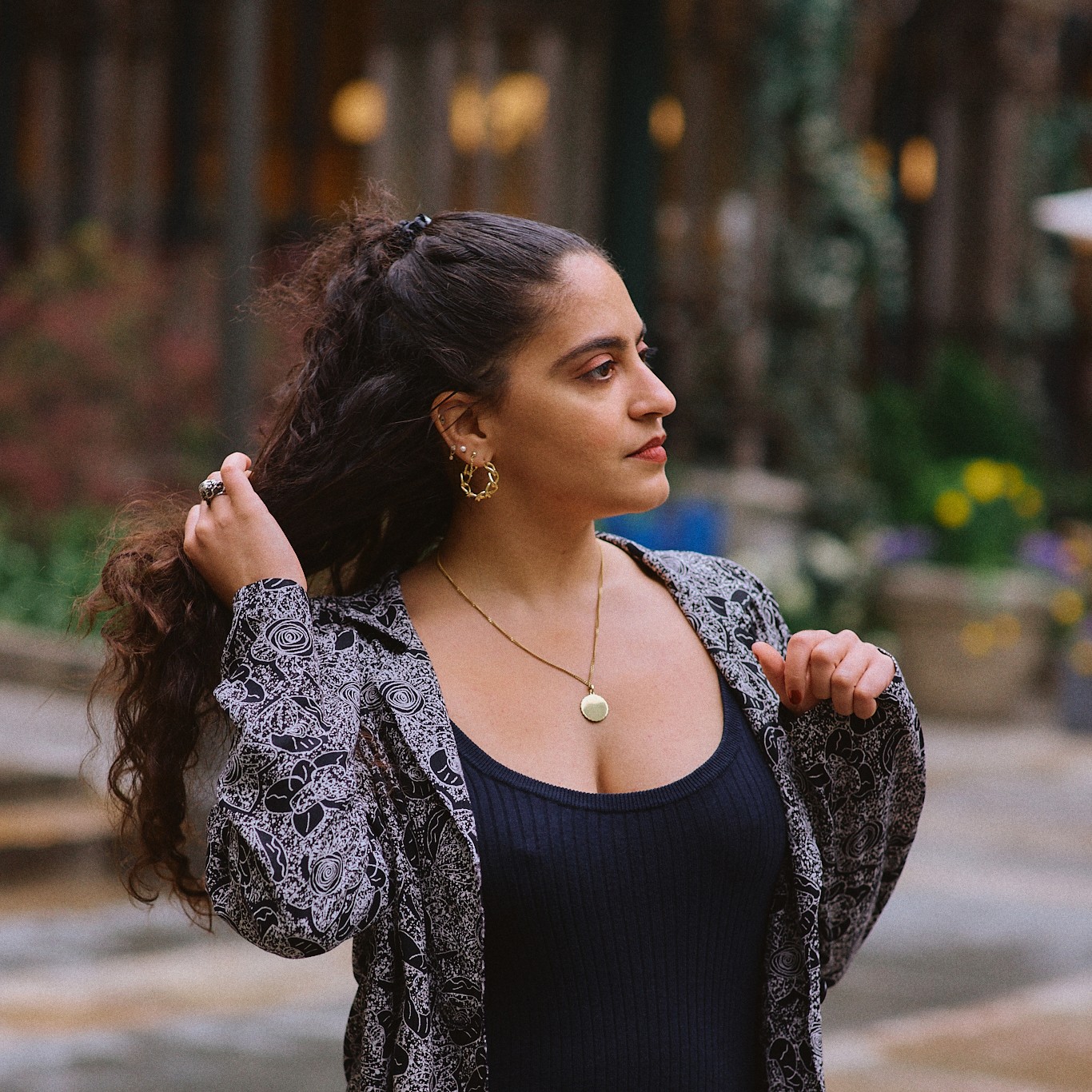
The Cost of Starting Your Own Business talks to founders to get an honest look at what it really takes to create a company. Not just the financial, but the personal and emotional costs, too.
When Deepica Mutyala joins Marie Claire to discuss the early days of her beauty brand, Live Tinted, she's experiencing the simultaneous high highs and low lows other entrepreneurs know all too well. Mutyala had just met Beyoncé (an all-time high) in person—and was also reeling from filling out a police report after her car was burglarized (an anxiety-inducing low).
"One day, you have a car break-in; the next day, you're in a room, shaking hands with Beyoncé, telling her about your beauty company, and she's telling you she wants all of us to win," she says. "These things happen as an entrepreneur, and it takes a certain kind of human to be able to handle it. But honestly, I feel like I was built for it, and it keeps life interesting."
Based on Mutyala's track record over the last five years, she certainly is built for the business. She became a household name since 2015, when she went viral for her makeup and skincare tips on her YouTube channel. Now, she's best known for her beauty brand, Live Tinted, and its inclusive, effective products made with people of color in mind. Her SPF has even gained a cult following—but Mutyala says the project was nearly scrapped.
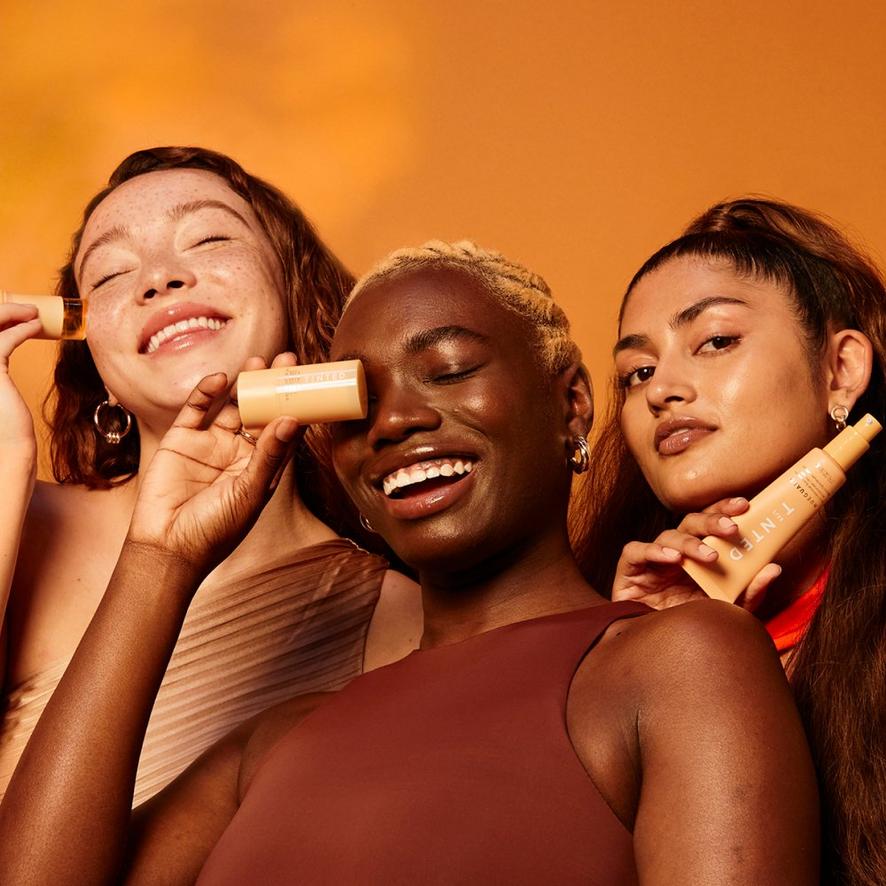
Mutyala makes a conscious effort to include people of all skin tones in Live Tinted's marketing so that everyone can feel seen.
Advisors told the founder creating a mineral SPF without a white cast—or even sunscreen in general—was a risky move for an early-stage business. "They said, 'It's going to take a lot of time. It's very expensive. Don't do it,'" Mutyala recalls. "But I didn't listen—and we've won several beauty awards because of it."
"More importantly," she continues, "we've connected with an audience, and it's become our bestseller because I created something that again made people feel seen."
That tenacity, dedication, and commitment to making people of color feel represented has taken Mutyala to heights some entrepreneurs only dream about. Still, she wants to make it clear that she has rough days, too. So do her heroes.
Stay In The Know
Get exclusive access to fashion and beauty trends, hot-off-the-press celebrity news, and more.
"For instance, I met Beyoncé yesterday. To me, I'm like, 'Oh my God, you icon.' But I'm sure she has her own versions of [self-doubt], the same way that maybe somebody's looking at me, thinking the same thing," she says. "Life is a journey and we have to find ways along the journey to find happiness and pockets of joy that keep us going."
Ahead, Mutyala opens up more about her entrepreneurial journey, including real talk about funding, self-doubt, and the physical and psychological costs of starting her brand.

Step one, and the most important to say out loud, is funding. Receiving funding was really hard. Two percent of women get venture funding, 0.1 percent are women of color, and I experienced that in real time. I witnessed that with my own eyes. The hardest thing I had to go through when starting this company was that. There are two reasons it's hard: It's hard because you're actually just trying to start this business, and you can't function and create the company without the funding. And on the other side, it's an emotional journey because people are telling you no all the time.
You start to doubt yourself in ways that you actually never did [before]. Luckily for me, I have a delusional level of self-belief that it got me through it. 'Delulu' was the word, because when I think back, I think of the amount of people who were just like, 'Oh, cute, you have a viral YouTube video and you think you can start a business off of it.' It's like, no, this was not a cute viral YouTube video with me being like, 'Oh, let me just try this out.' This was a sixteen-year-old girl who never saw herself represented in the beauty industry who promised herself she was going to do something to change it. And everything that I've done is to that end.
I had this mindset of, 'If you're going to say no, let's go to the next person.' I just kept going and going. And now I'm proud that I'm a part of that stat of the two percent of women who's raised funding. I think the amount of women who've raised over 10 million dollars in funding is even lower than that, and that's what I've been able to do.
There were so many challenges, the emotional journey, the feeling that I have to make my parents proud as an immigrant daughter. Being first generation, you have all these things on your shoulders that you just want to prove to yourself, but also to your family to show that you can do something that hasn't been done before.

At launch, we had raised a round of funding via friends and family angel checks, and it was a very small amount of money. My thought process was, How can I get people that I have built within my network throughout my career, who believe in me, to put in a check? I wanted more than just funding from them—I wanted their knowledge. How could I learn from them? Because so many of them were entrepreneurs, and I wanted them to then feel like they were going to benefit from my growth and feel more invested in my growth.
They were also the only people who would give it to me at the time. You have to go to the people who believe in you. So I'm very proud, and I really attribute so much of my success to the network I had built over my entire career. I went to these people who I had just gone to for advice and said, 'I'm building a company. I want you to be behind it with me, and I want to build this together. I'm so grateful for the knowledge you have given me over the years, and I want you to reap the benefits when my business scales and grows and makes you money.' I tried to position it as an opportunity for them.
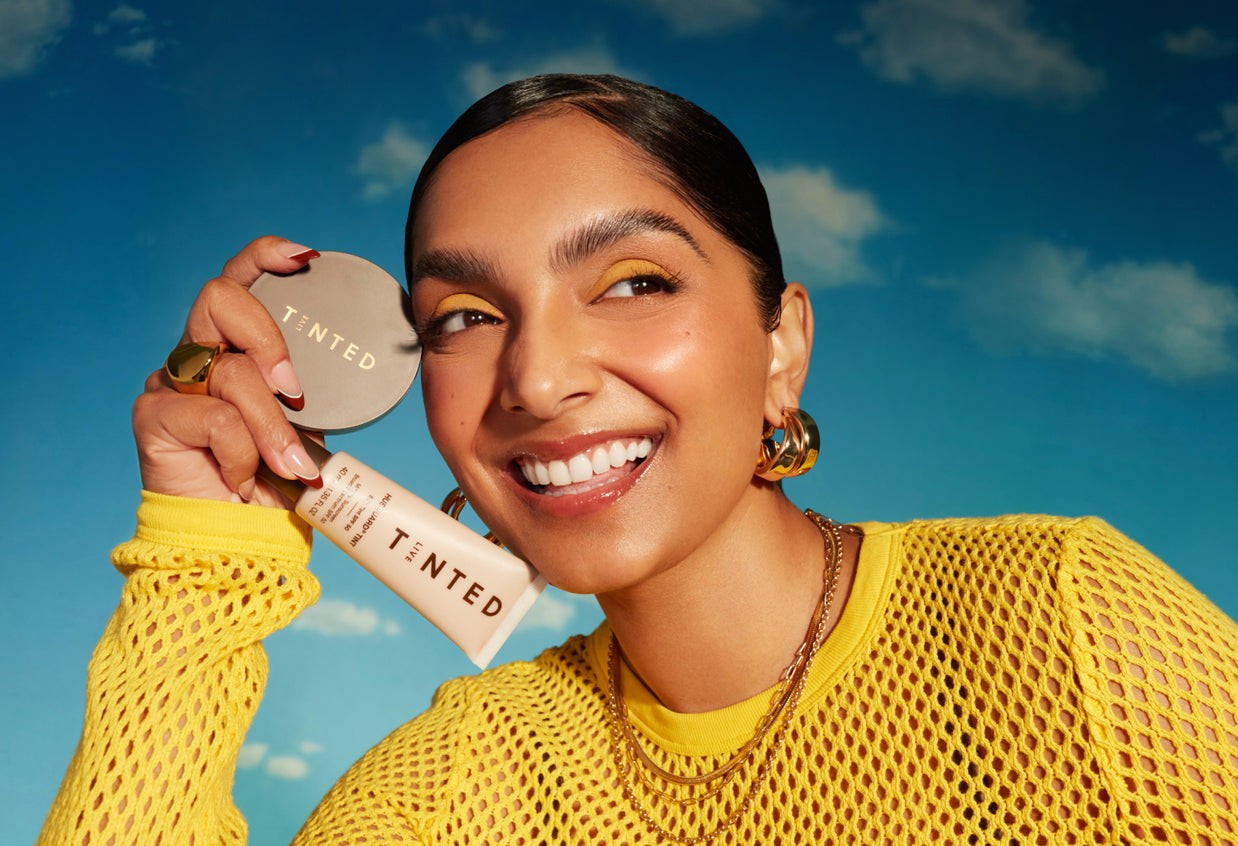
Live Tinted's new Huegard Skin Tint is set to further the brand's reputation for providing premium sun protection without leaving white residue behind.

The one that really stands out to me is actually pre-me starting the company. It was when I was interning at L'Oréal. They didn't give me the full-time offer because they said I wasn't a strong enough marketer. It shattered me. I was like, What? The plan was: I was going to intern in a year, and then I was going to move to New York after college, be a brand manager for the biggest beauty brand, go to Harvard Business School, make my parents proud, and then start my own company. So I had to quickly pivot the whole plan and my brain.
Again, it was still this delusional level of being like, Well, it's still going to happen, but how is it going to happen? But it is very ironic because, since then, I have worked with L'Oréal as an influencer. I've been in a L'Oréal commercial. I've spoken to the head of the L'Oréal investment team about them potentially investing in us. And who knows? Maybe one day they'll buy us. I just think it's just that the definition of rejection is redirection. You have to have your pity party at that moment, but then get up and recognize that it's one person's opinion and they don't know you. You know you. Again, it goes back to this self-belief: I was like, 'I'm going to do this. It's happening. Get on board or don't. But it's happening.'

I didn't really have a personal life. I am trying to figure out what it's like to be a woman in her 30s dating, because I didn't do it while I was building this company. I don't really know how to exert myself. I'm telling myself I'm in my 'soft girl era,' because I don't even know how to exert the feminine parts of myself. Going on dates—the whole thing is a whole new learning curve, because I didn't develop those skills in my 20s the way a lot of people do in their 20s. So I do think that everything does come a little bit out of sacrifice, but I also do really believe in chapters of life. When it comes to the whole 'you-can't have-it-all thing,' I don't believe you can have it all at once, but you can in different chapters and phases of your life.
I'm now at the stage in the business where I can hire the best talent possible and have them help run the business day to day. I can try to remove myself from the weeds a little bit and be more high-level and focused on strategy and hopefully be able to sleep a little bit better at night and have a personal life, because I just don't have one. But I don't have any regrets about it either. The other thing is that, for me, I don't think that I could be where I am in my career professionally if I had prioritized other things in my life simultaneously.

Right now, launching in a retailer and going to Ulta Beauty has been a game changer for our business. They are incredible partners and they're committed partners, and I've always dreamt of people walking into the biggest retailers in the world and seeing faces that look like yours, mine, and a whole spectrum right when you walk in [the store]. That way, when a little girl walks in, she's like, 'Oh my God, that girl looks like me.' That is my motivation. That is what gets me going. That literally fuels my fire even on the hardest days. I feel Ulta's commitment to what Live Tinted stands for by them putting us in the front of the store. It's a game-changer because of the 40 million beauty enthusiasts that they have as their customers.
Then hiring in a president who really knows how to work with that Ulta team has changed my life personally. Finding the person you feel comfortable delegating to is 90 percent of the journey, and you make mistakes along the way, but I finally feel like I can breathe, or at least like I have somebody to share the breath with.
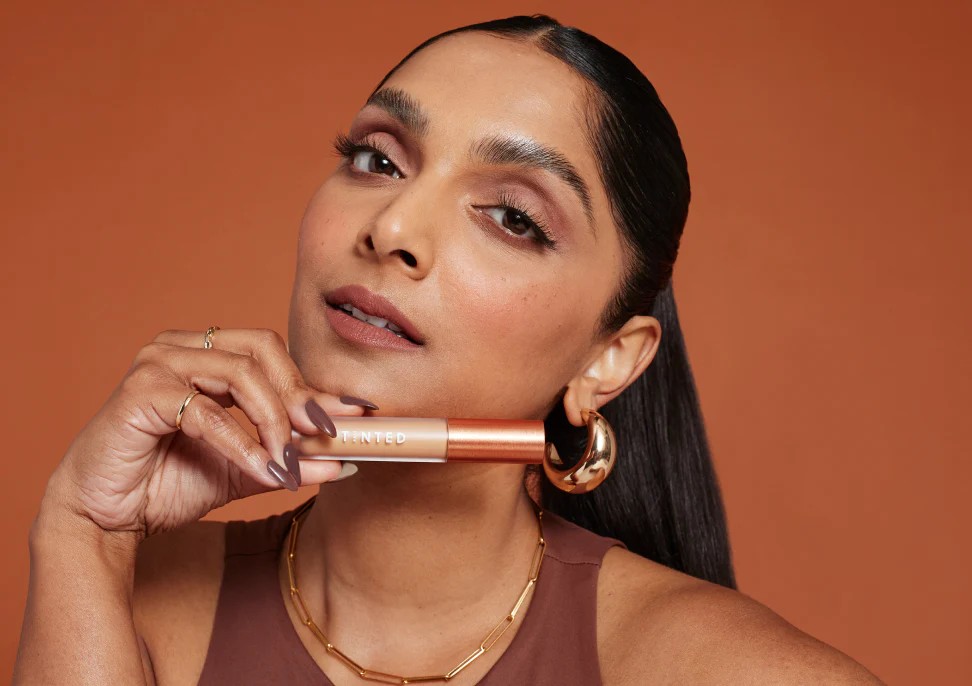
Live Tinted's marketing puts women of color front and center—without depicting them in stereotypical, problematic ways.

I don't think it's a day versus an hour of a day every day. Moments happen in a day that are high highs and low lows. I am craving just a steady, still state of happiness. I met with Carol Hamilton, this genius icon from L'Oréal who leads M&A, and she spoke about how the first five years [of starting a business] are just a bunch of figuring things out. Then the next five to seven are the hyper growth years. That's where I feel like we are, in that fifth year. The next two years are going to be critical for the business. I'm craving us getting to a place of steady happiness and joy.

I went through a journey when I turned 30, where I thought I should I freeze my eggs, because I just did not see a near future of having kids. I do want to have them one day, but I also didn't want the pressure of having to do it just because of the biological clock everybody talks about. Maybe when we have this conversation in 10 years, I'll tell you, 'Man, that girl was full of shit. She was saying a bunch of things, but she didn't mean it.' But I have to say, at least right now, where I am in my life, I feel like I just handle things with just solutions. Like, I turned 30, I'm not having kids anytime soon, so I froze my eggs. I am not going on dates, so I thought, 'Okay, should I hire a matchmaker? Should I hire a president for my company so I have more time for a matchmaker?' Instead of reacting emotionally to all these things, I've built this sort of armor that is really more focused on problem-solution rather than leading with emotion.
I say that, but at the same time, when it comes to everything relating to my company as a founder, I take it so deeply personally and I do get emotional, and I think I've doubted myself a lot. There have several times in the past that I've doubted myself to be the CEO of the company, because I've wondered: Am I too emotional for this? But I've now come to the conclusion that my empathy is my superpower, and it's what makes people want to be here beyond just it being their job. I feel like people come in and feel like they're making an impact in the industry and that they're working for somebody who cares. But I don't think I also have it all figured out at all, to be very honest.

When there was a Barbie made after me, that was just such a proud moment for me. It was the first ever South Asian CEO Barbie doll. There's been South Asian Barbie dolls before, but they've been in traditional wear, which is also really, really cool, by the way. So awesome that exists. But to see just a South Asian woman in a power suit and wearing her Indian jewelry and things like that, I was really proud of myself. I identify as Indian American. I'm Indian, but I was born and raised here. I'm American, and I think I'm proud, and I want to normalize that Indian girls see themselves in positions of power.
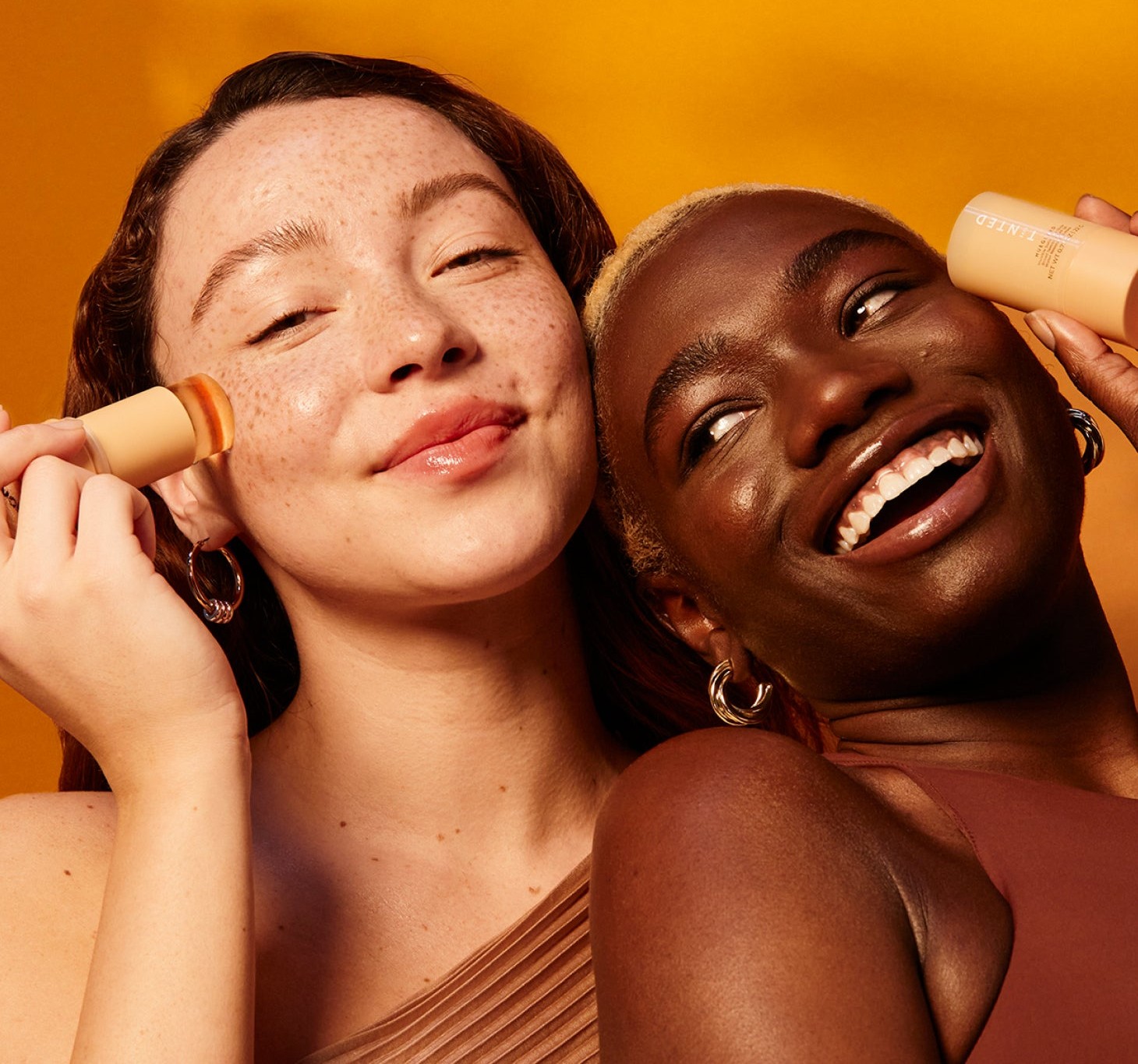
Live Tinted's award-winning sunscreen stick is conveniently packaged so that users can take it on the go and apply (or reapply) anytime, anywhere.

Not every company needs to be built based on a strong purpose. To be honest, I used to look at companies and be like, 'I don't want to shop this brand, because it doesn't have something I believe in.' It's not that I don't feel that way now, but I now recognize as an entrepreneur and from a business perspective that it doesn't have to be everyone's journey. But I'm proud that it is my journey, because on the hardest days, I can walk down the street or go into an Ulta door or open my DMs, and consistently I hear, 'Thank you.' It's just, 'Wow I love your products,' but it's deeper to the people who buy our products. It's not just a product. It's a vehicle for them to see themselves and feel represented in an industry that's neglected them their whole lives. So I feel like I'm lucky that I get to be the person that makes them feel seen. I'm proud that the majority of people who know us, know us for that. It gets me through the hardest days because at these meet and greets, there are girls crying, shaking, saying thank you.
There's a girl I just saw an Instagram. She drove across the border to Ulta for two hours to go get the skin tint. That kind of loyalty is not normal for a brand. So I'm just really grateful for it. And now I just feel like I owe it to the community of people we've built to grow and build a massive global beauty brand, so they can walk in the doors anywhere in the world and walk into that retailer and say, 'Oh my God, I feel seen.'

It's more feedback I've received from my mentors. They always tell me, 'You've got to stop listening to the noise around you. You're so distracted.' It's so hard, because I'm the CEO, but I'm also an influencer on social media. So I'm constantly having to look at what's online. But the constant feedback I've gotten from people that I admire that are entrepreneurs is, 'You've got to cut the noise. We didn't invest in you, bet on you, believe in you, to hear someone else's strategy. We are here to believe in your strategy.' So I think it's important advice for women in today's very, very, very noisy social media world: Really, really try to put blinders on and stay focused on your journey and your path.
Shop Live Tinted

Gabrielle Ulubay is a Beauty Writer at Marie Claire. She has also written about sexual wellness, politics, culture, and fashion at Marie Claire and at publications including The New York Times, HuffPost Personal, Bustle, Alma, Muskrat Magazine, O'Bheal, and elsewhere. Her personal essay in The New York Times' Modern Love column kickstarted her professional writing career in 2018, and that piece has since been printed in the 2019 revised edition of the Modern Love book. Having studied history, international relations, and film, she has made films on politics and gender equity in addition to writing about cinema for Film Ireland, University College Cork, and on her personal blog, gabrielleulubay.medium.com. Before working with Marie Claire, Gabrielle worked in local government, higher education, and sales, and has resided in four countries and counting. She has worked extensively in the e-commerce and sales spaces since 2020, and spent two years at Drizly, where she developed an expertise in finding the best, highest quality goods and experiences money can buy.
Deeply political, she believes that skincare, haircare, and sexual wellness are central tenets to one's overall health and fights for them to be taken seriously, especially for people of color. She also loves studying makeup as a means of artistic expression, drawing on her experience as an artist in her analysis of beauty trends. She's based in New York City, where she can be found watching movies or running her art business when she isn't writing. Find her on Twitter at @GabrielleUlubay or on Instagram at @gabrielle.ulubay, or follow her art at @suburban.graffiti.art
-
 'The Pitt' Star Taylor Dearden Says She Sees Her and Dr. Mel's Neurodivergence as "a Superpower"
'The Pitt' Star Taylor Dearden Says She Sees Her and Dr. Mel's Neurodivergence as "a Superpower"Here's what to know about the Max series's breakout star, who just so happens to come from TV royalty.
By Quinci LeGardye Published
-
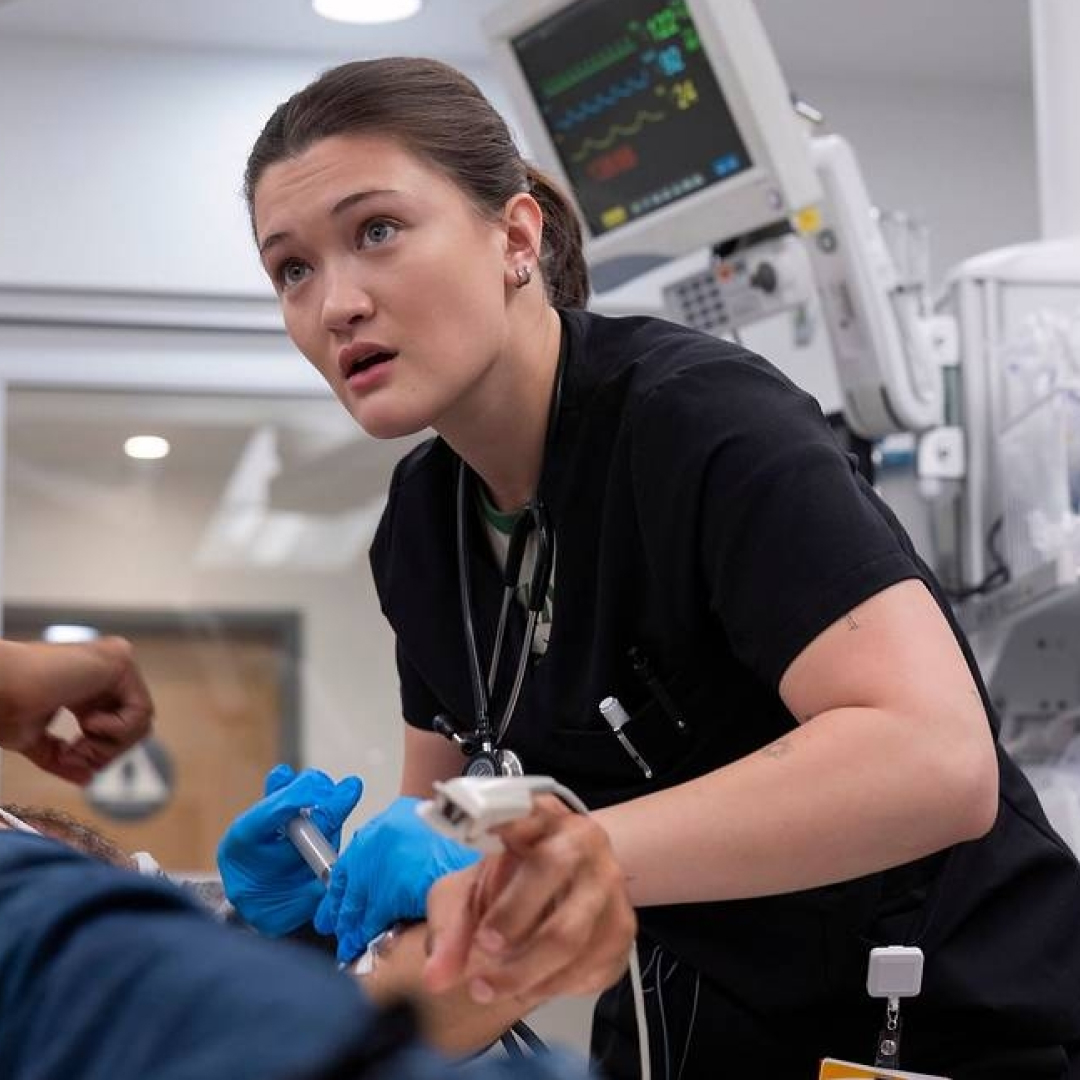 We Owe Trinity Santos From 'The Pitt' an Apology
We Owe Trinity Santos From 'The Pitt' an ApologyThe season finale of the smash Max series proved that the most unlikable character on TV may just be the hero we all need.
By Jessica Toomer Published
-
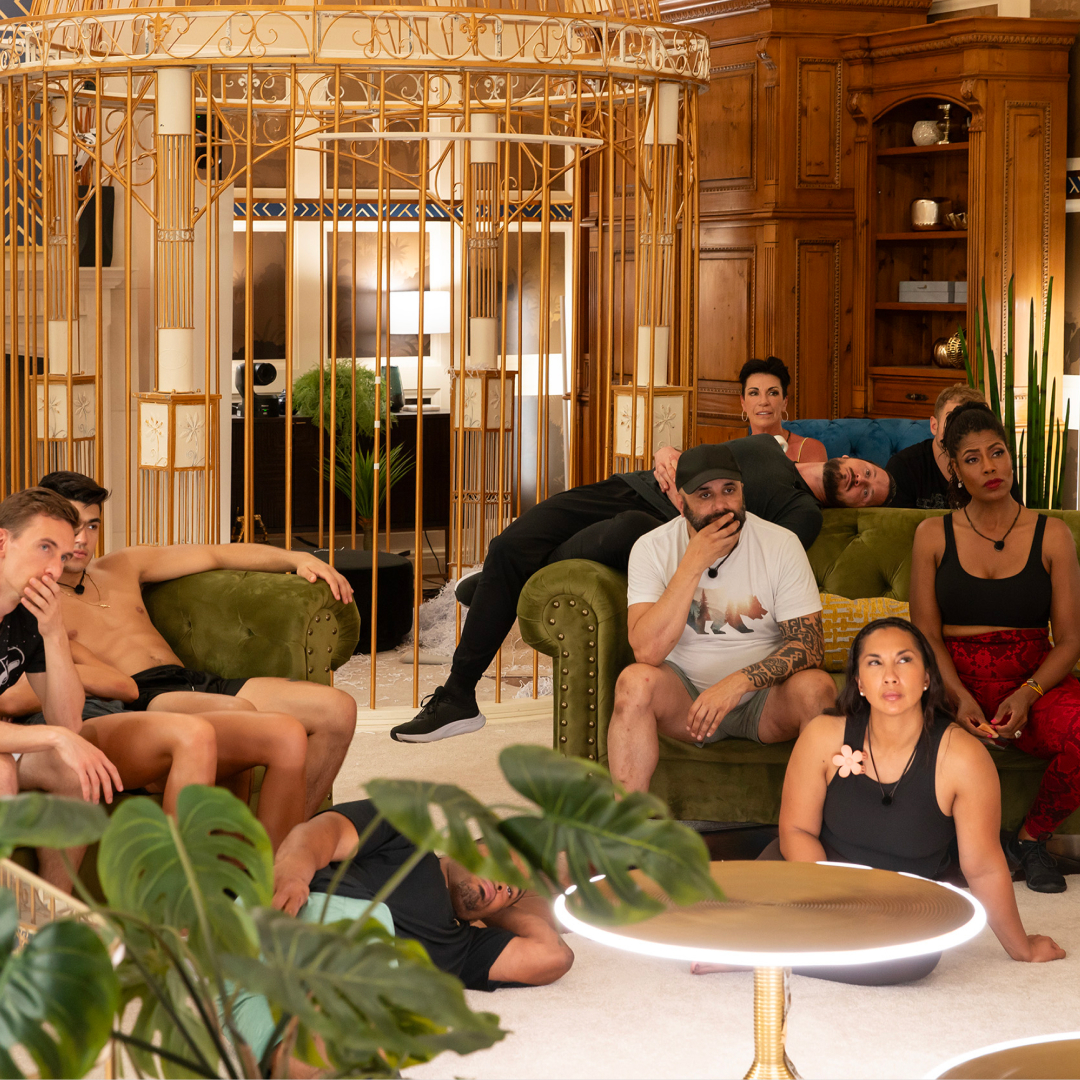 Your Guide to the Cast of 'Got to Get Out,' Which Pits Reality TV Alums Against Each Other for a Chance at $1 Million
Your Guide to the Cast of 'Got to Get Out,' Which Pits Reality TV Alums Against Each Other for a Chance at $1 MillionHulu's answer to 'The Traitors' is here.
By Quinci LeGardye Published
-
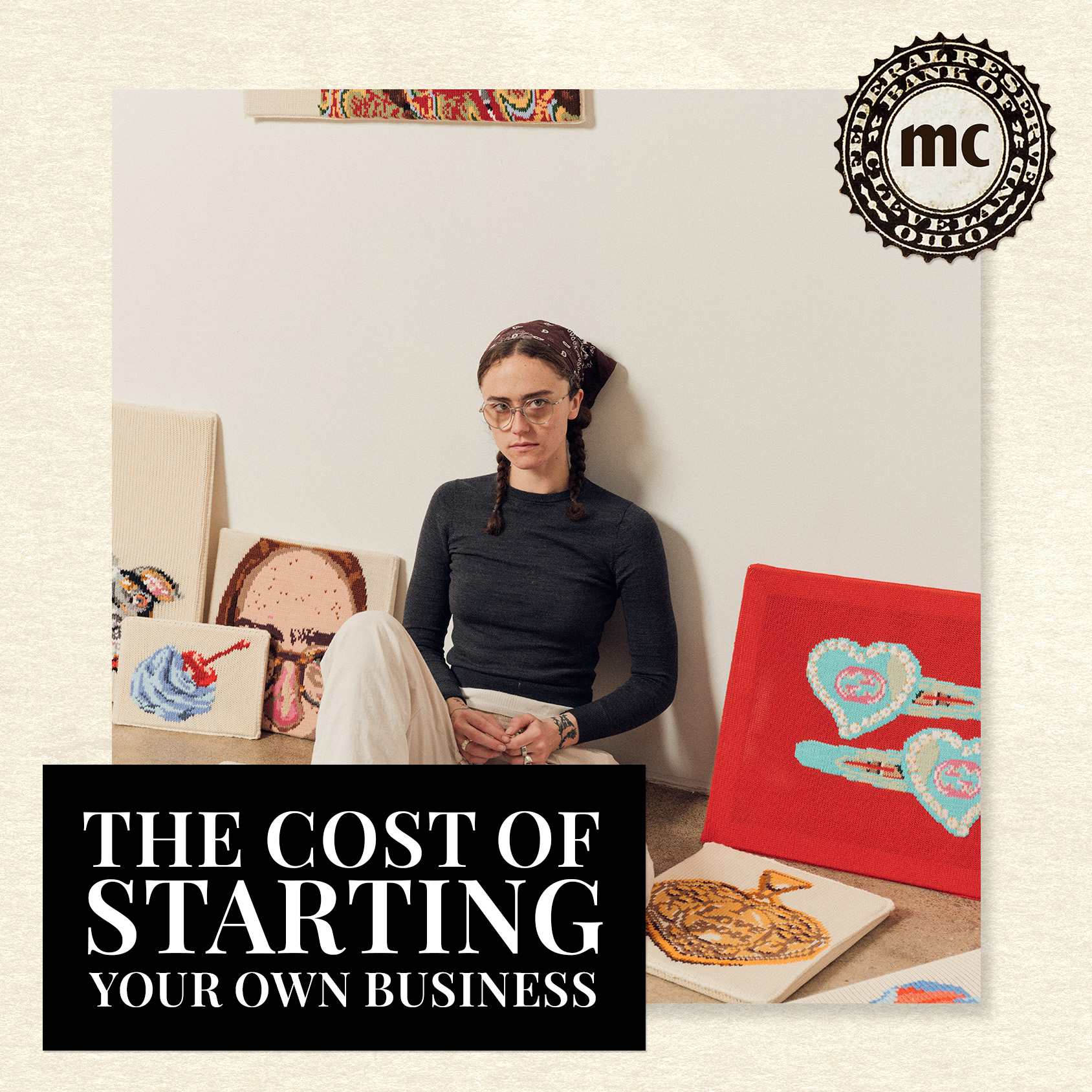 Ella Emhoff Never Intended to Be an It Girl—All She Wants Is to Knit
Ella Emhoff Never Intended to Be an It Girl—All She Wants Is to KnitThe second stepdaughter and former fashion model opens up about her true passions: art, knitting, and community.
By Emma Childs Published
-
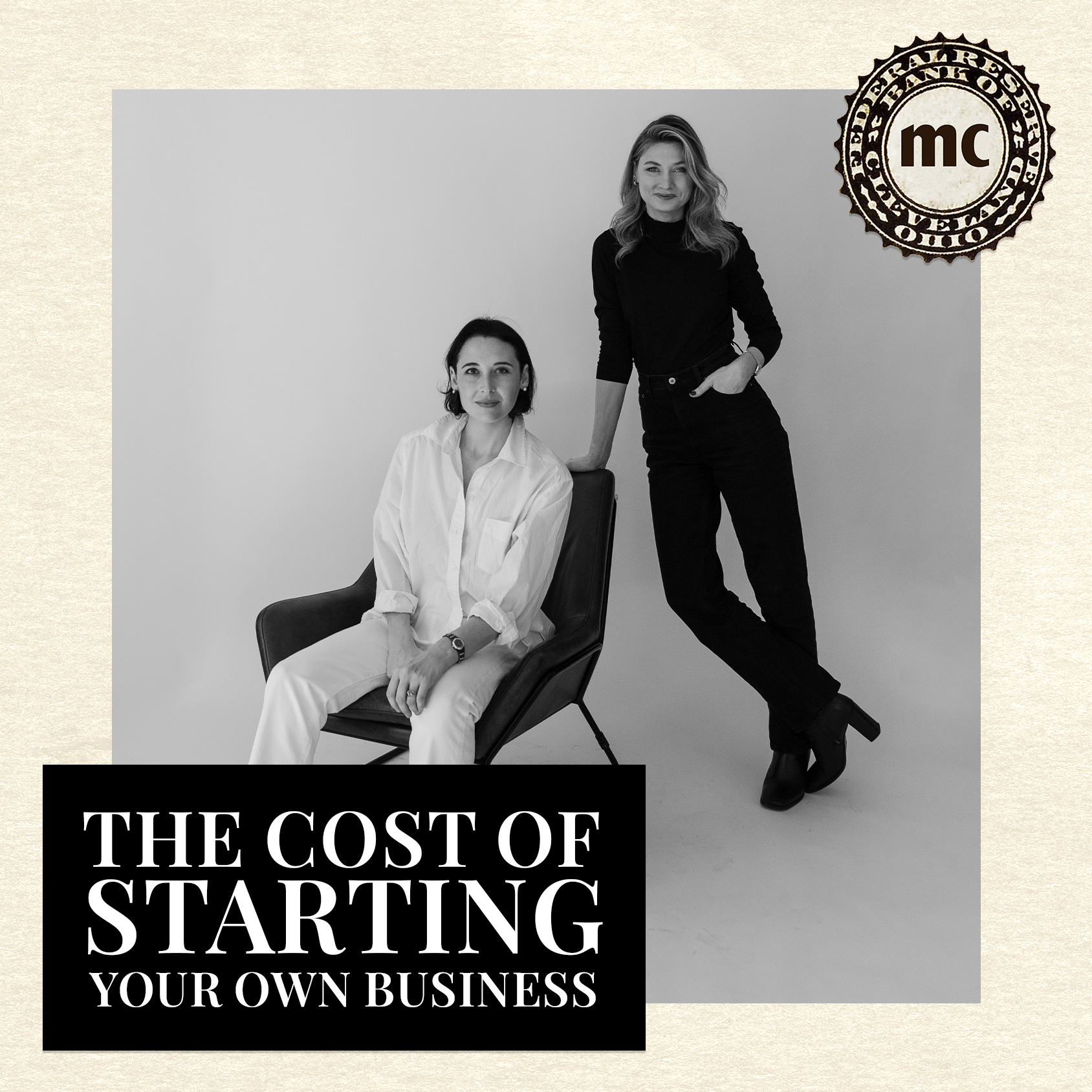 What It Takes to Bootstrap Your Own Art Gallery in New York City
What It Takes to Bootstrap Your Own Art Gallery in New York CityIt took Lin Tyrpien more than a decade to find her calling. When she realized she wanted to run her own creative space, the real work began.
By Jenny Hollander Published
-
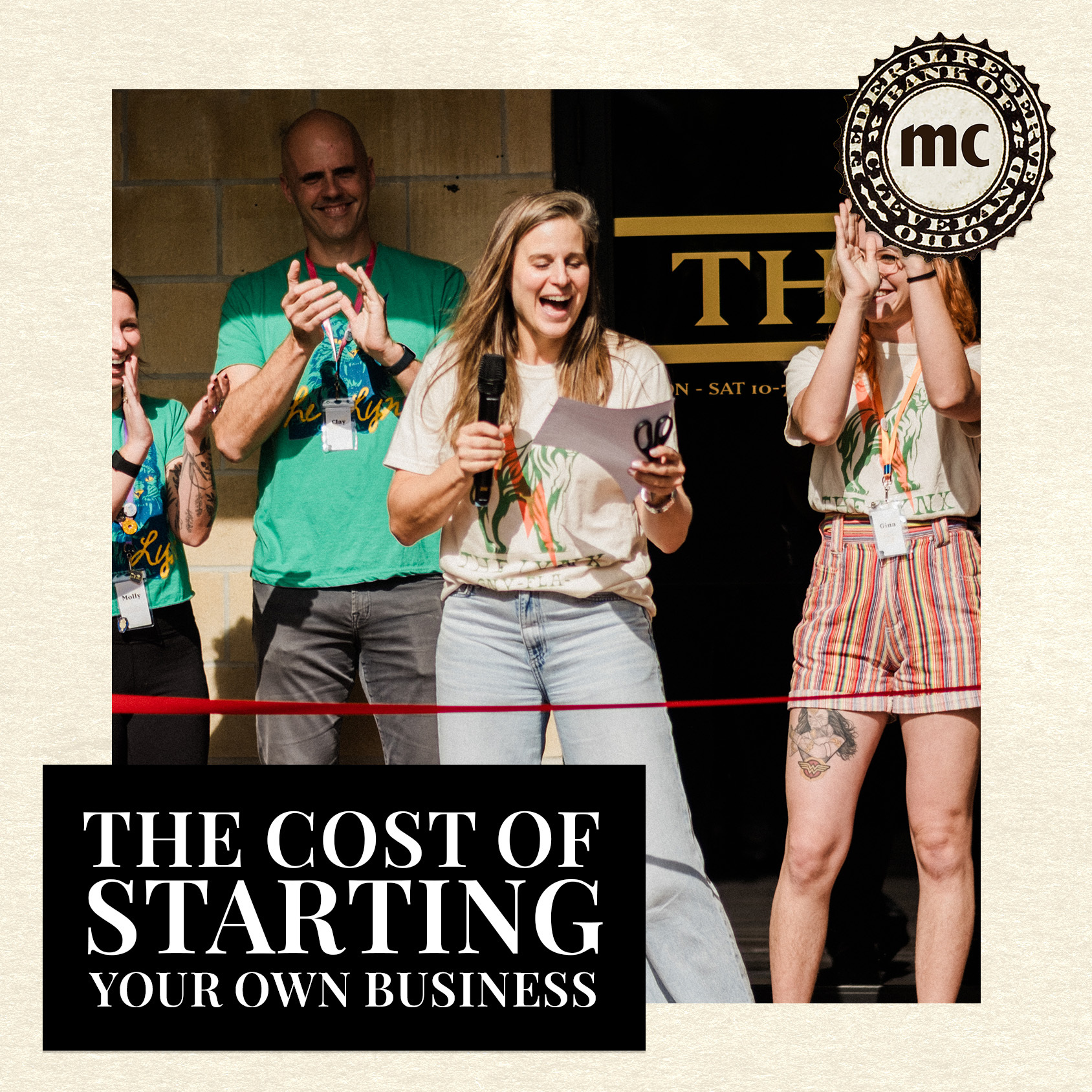 Lauren Groff on What It's Like to Launch a Bookstore in the Land of Book Bans
Lauren Groff on What It's Like to Launch a Bookstore in the Land of Book BansThe Lynx opened in Gainsville, Florida as a foil to the state's legislation in support of censorship.
By Marie Claire Editors Published
-
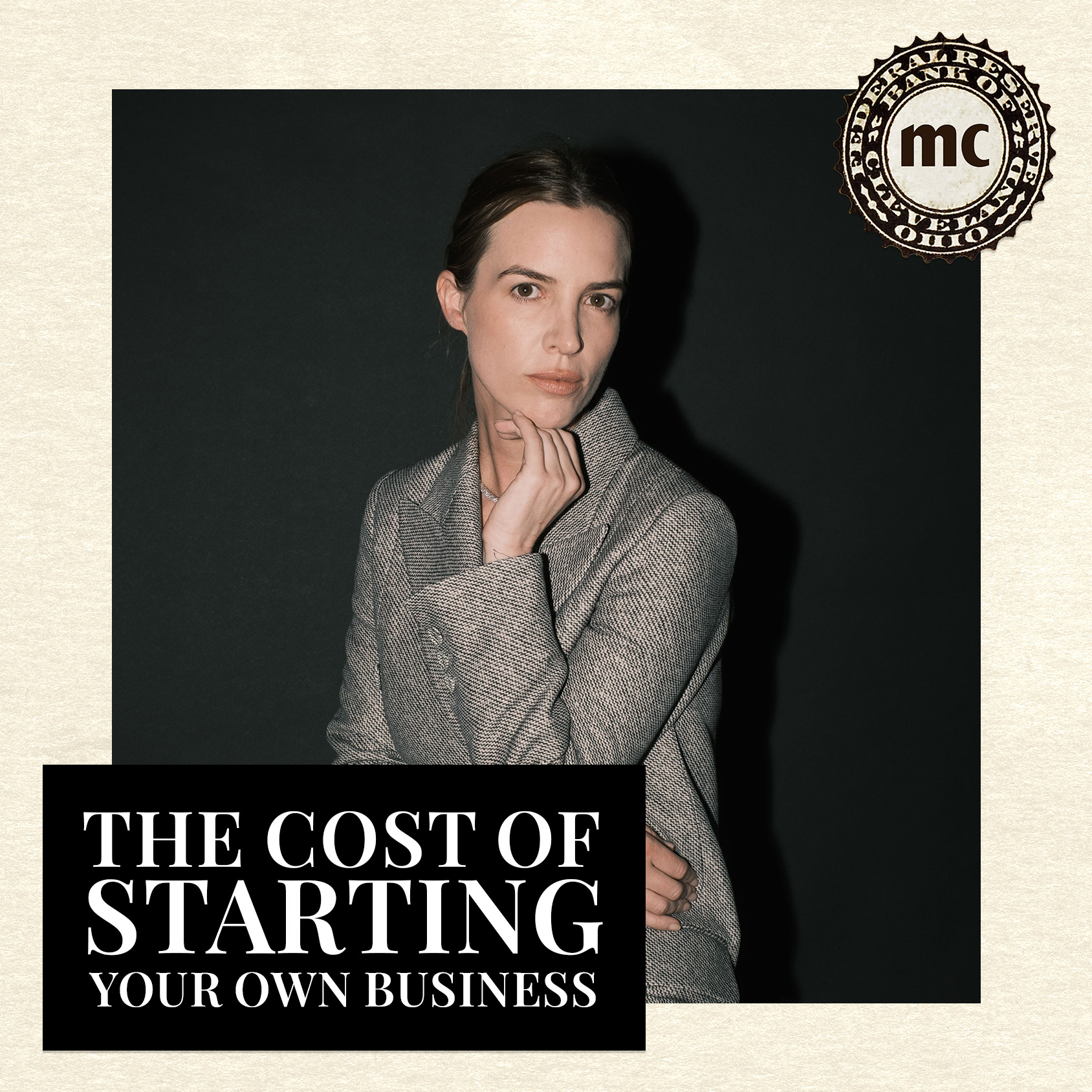 Self-Doubt and Sacrifices—Dorsey’s Meg Strachan Gets Candid About Launching Her Jewelry Company
Self-Doubt and Sacrifices—Dorsey’s Meg Strachan Gets Candid About Launching Her Jewelry Company\201cHave we made it? From the outside, perhaps. Internally, we are working really hard to make it every single day.\201d
By Emma Childs Last updated
